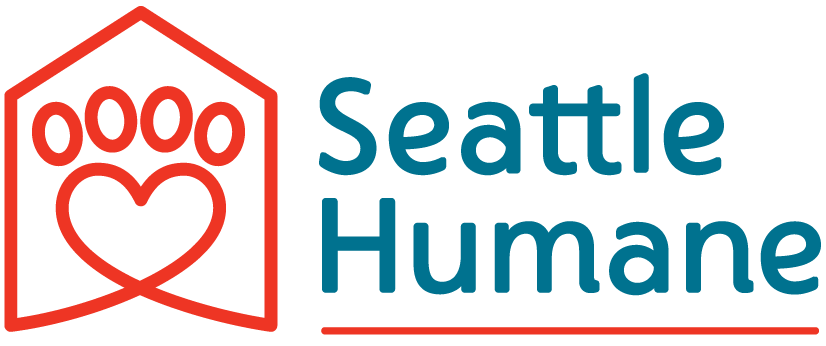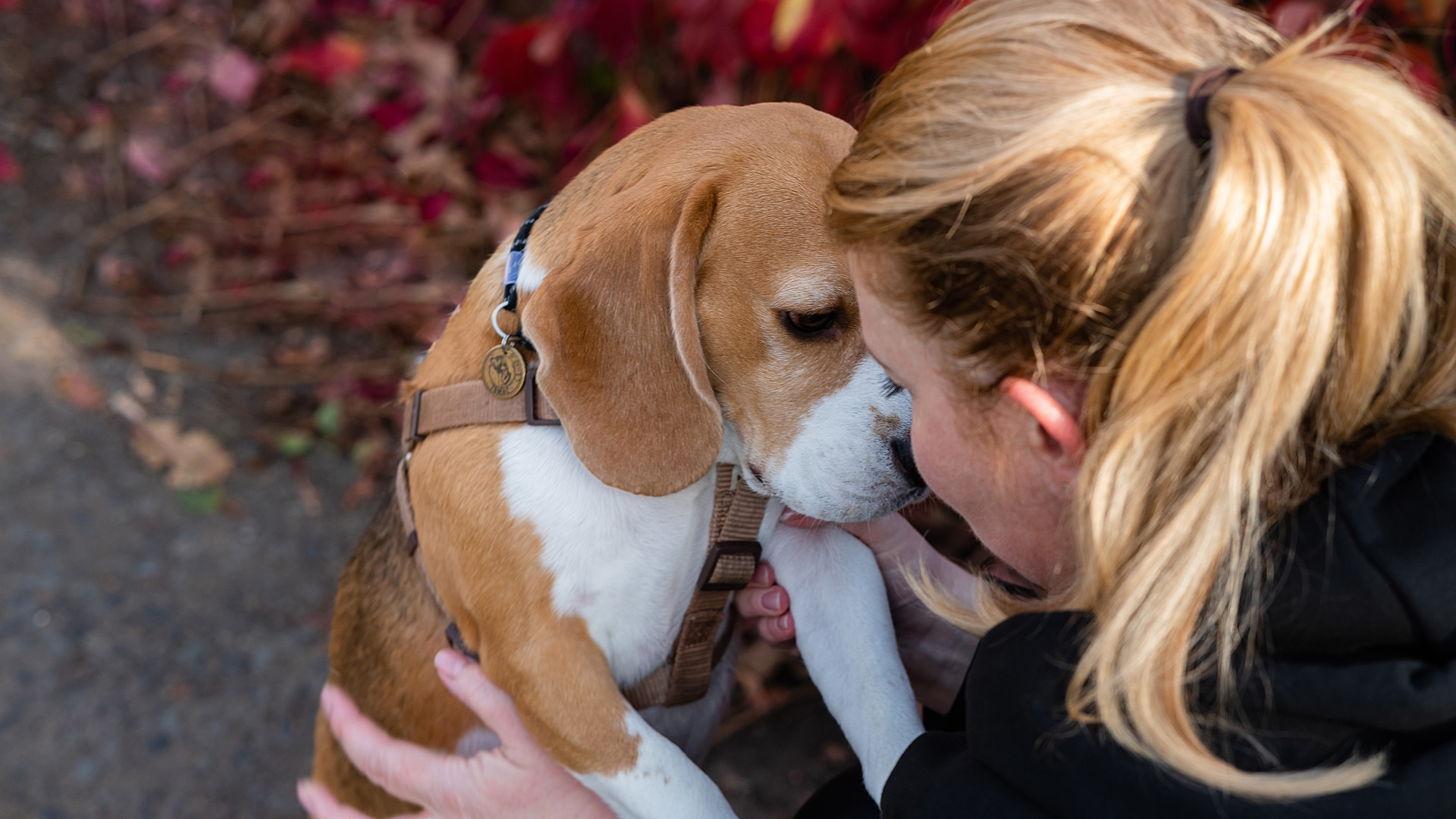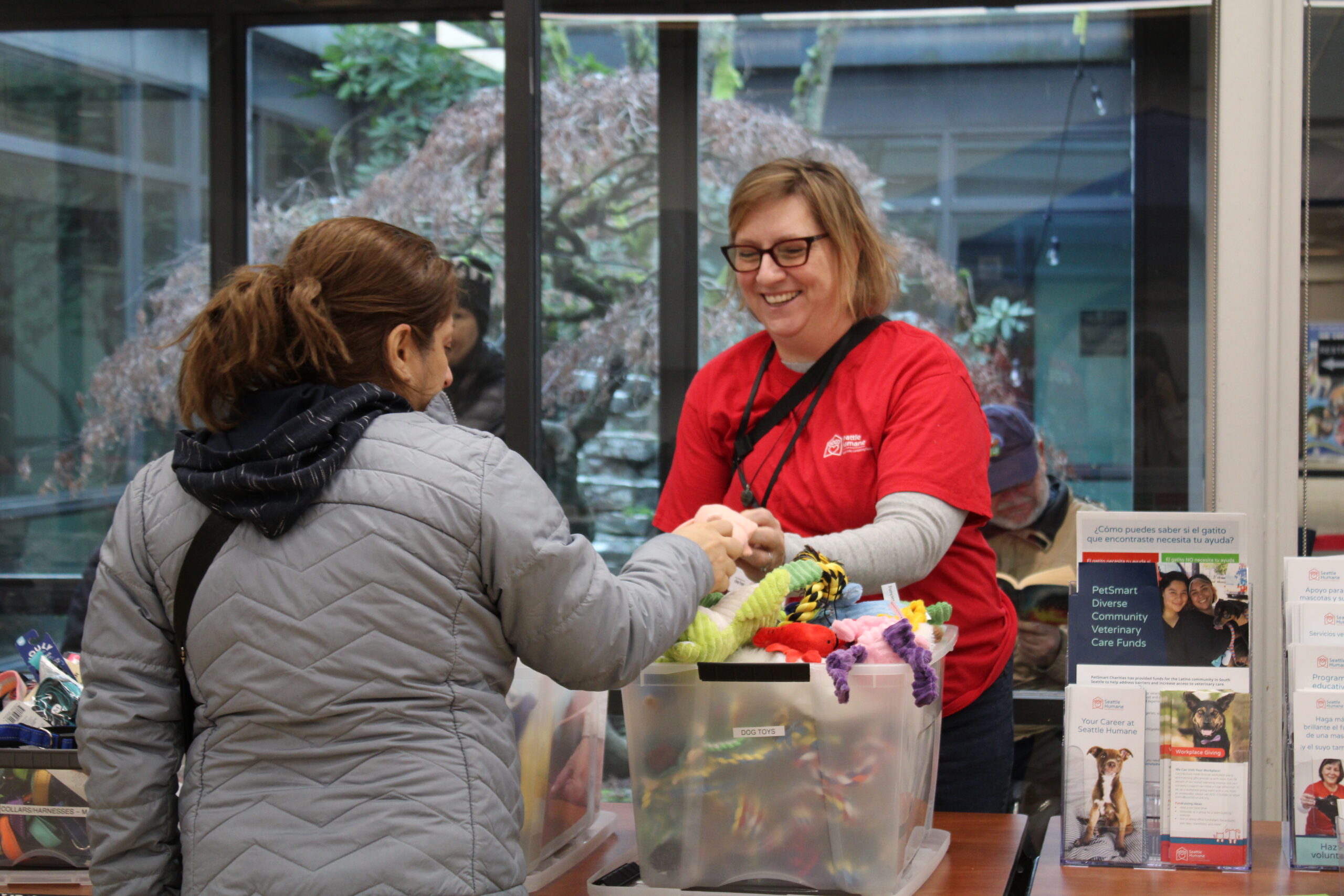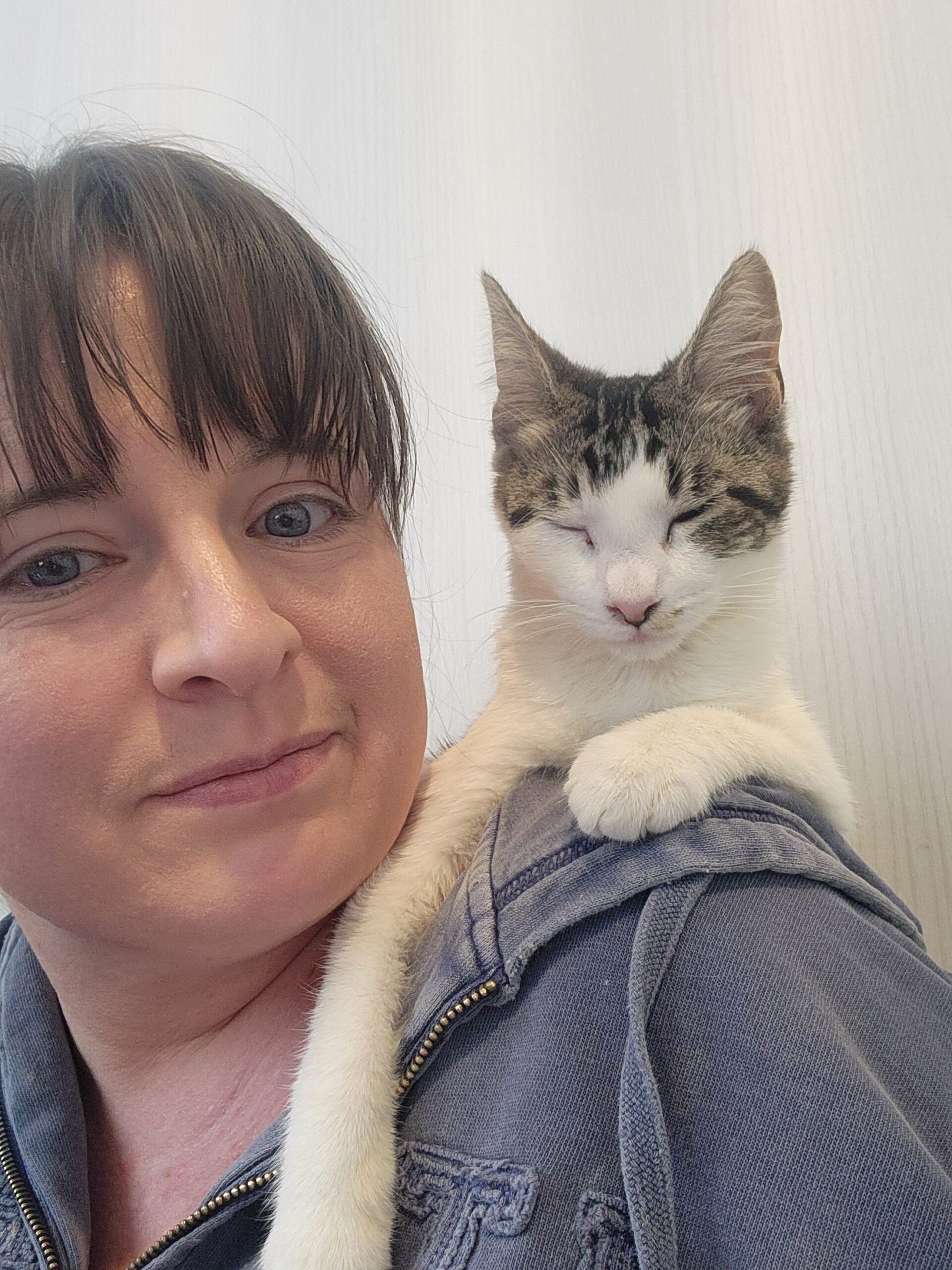When times are tough, here’s how we can help
When people suffer, pets do too. That’s why Seattle Humane collects, packages and distributes between 16,000 to 18,000 pounds of pet food every month through the Pet Food Bank. The Pet Food Bank serves more than 2,000 families at dozens of pick-up locations throughout King County. While ongoing support is reserved for income-qualified King County residents, we also provide one-time donations for families in crisis. An average of 10 clients a week fit this category and requests spiked last month during the government shutdown.
Our community outreach team received 20 calls from federal employees in January and 12 of these callers came to the shelter to collect items.
“Many federal employees live paycheck to paycheck, and even if they are going to receive back pay, they don’t have the cash right now,” says Julie McCabe, Community Outreach Coordinator for Seattle Humane.
Pet food, supplies and medical care can be heavy expenses for families experiencing a hard time. Start with food; less expensive brands may start at $12 for a 15-pound bag. Depending on your pet’s size, diet, or your number of pets, one bag won’t be enough for one month. Double or triple the cost if your pet needs diet or prescription food. Beyond regular care, vaccines or an emergency vet visit (easily $250 or more) can put enough pressure on families to make them consider surrendering their pet.
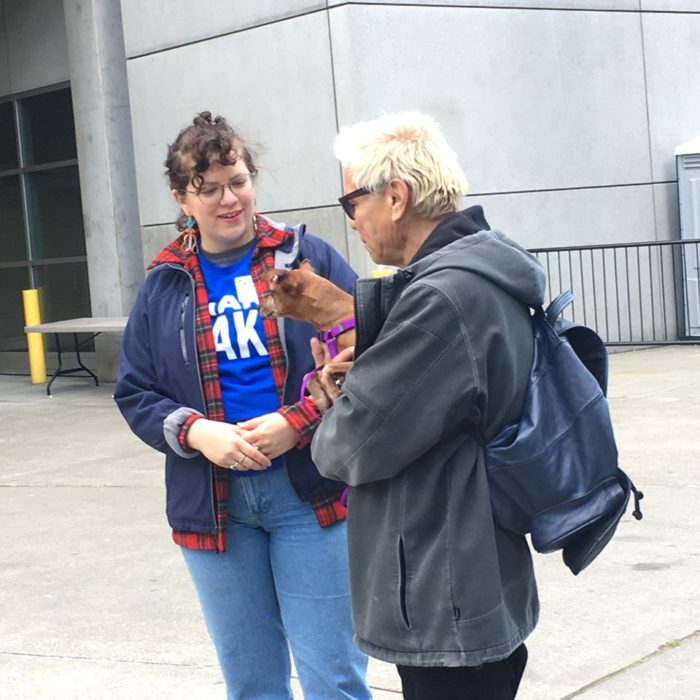
“When people can’t provide for their animal that they really love and want to keep, that’s really why we are here,” says McCabe. “When someone has a health issue, they are without a job, or they are caring for an elderly family member or any other extra expense, they might need that $20 or $30 to go somewhere else – we don’t want people to have to choose between feeding their pet and feeding themselves.”
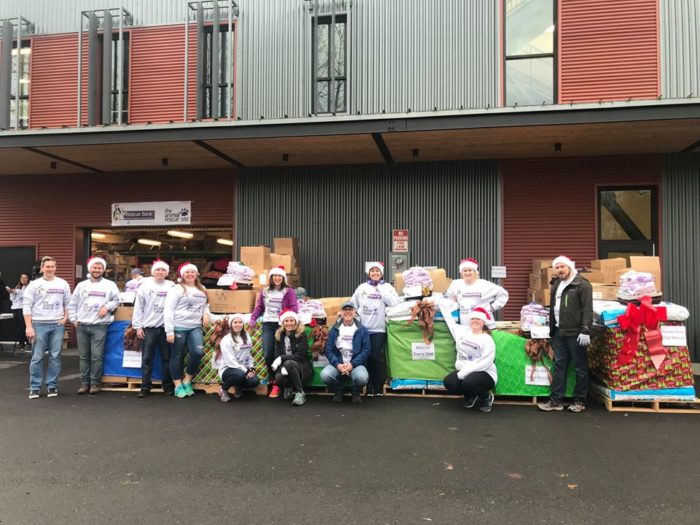
At the Pet Resource Center (fka our Admissions office), families are referred to the Pet Food Bank if there’s anything we can do to help them keep their pets. “It’s a gateway for a bigger conversation,” McCabe says. An extension of the Pet Food Bank is the Pet Project, which provides services to more than 200 pets belonging to low-income individuals with HIV/Aids or cancer.
Among other economic pressures, the local housing market presents an ongoing challenge for affordable, pet-friendly housing in the area. It’s important to notice homeless people and people on the verge of homelessness as well, McCabe says.
“If someone is homeless, pet rent and deposits can be exorbitant.” McCabe says. “That definitely presents a challenge.”
A little bit of help can make a huge difference for people in these situations. For a healthy animal, sometimes all someone needs is bag of food and treats to be able to keep their furry family member.
“We have one senior client in South Seattle who was homeless and is now in a transitional housing situation. She suffered four strokes within a period of a year and had a lot of very complicated health issues going on,” says McCabe. “She was gifted this dog Cooper by her daughter’s boss but she wasn’t sure if she could keep him. For us to be able to bring them a bag of dog food and treats every month brings her a total world of happiness.”
Seattle Humane’s Pet Food Bank could not function without its 130 volunteers. We rely on volunteers to deliver to food banks throughout the region, and they’ve largely built and strengthened those relationships.
Donations from the public – which are always welcome – can be dropped off in the red bins in Seattle Humane’s adoption lobby, vet reception center, and outside the Pet Food Bank. Volunteers sort items every day and distribute to more than 40 locations in King County.
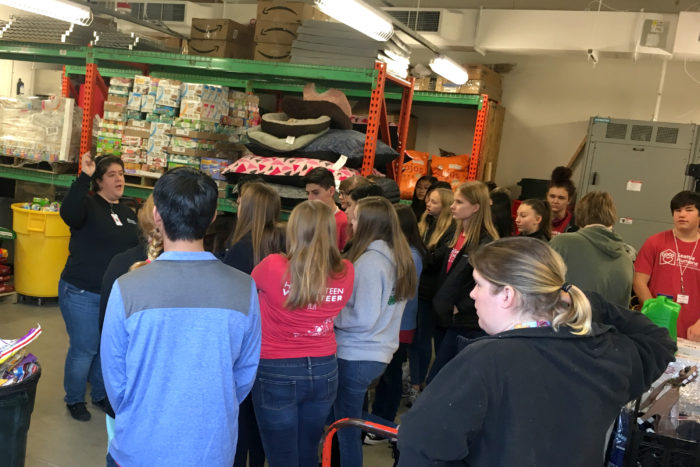
Since most-needed items can change weekly, the shelter does have surpluses as well as shortages. Any remaining items that can’t be stored, used in the shelter or distributed are typically offered for free on Craigslist. Families can pick up needed supplies from the racks outside of the Pet Food Bank. The goal is to reach as many people as possible.
Dave, who has multiple sclerosis and was recently paired with his dog Willa through the Prison Pet Partnership, came to the shelter earlier this month to pick up tennis balls that were listed on Craigslist. Dave and Willa take wonderful care of each other.
“We have been together for a few months now and she has learned a few tasks to help me in the shop or while out. If I drop something she is there to pick it up for me. That includes items like a hammer, a screwdriver, or even a credit card. If my car or walker rolls out of my reach, she will grab the rope that is attached to it and bring it back to me. She can pull my shop door open or push the button to open an electric door as well.”
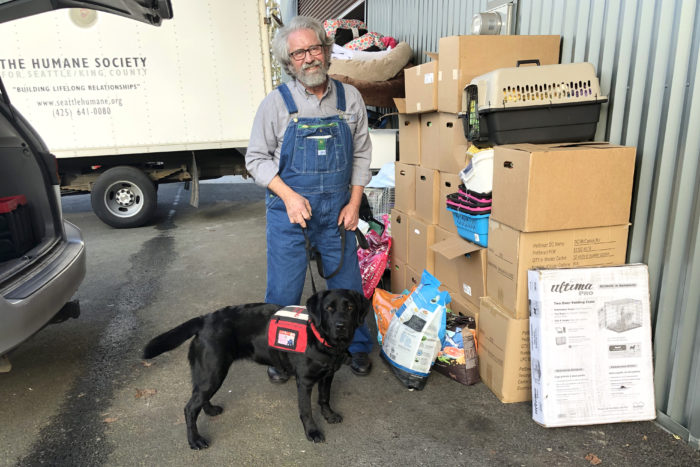
Community outreach and keeping people and their pets together is at the heart of what we do at the Pet Resource Center. Dedicated volunteers and donors make life better for countless families, both during government shutdown and all throughout the year.
“If someone’s already in a really tough situation in terms of housing, employment, or health and we can help them have this little glimmer of hope that brings them joy, then that’s priceless,” McCabe says. “I think it’s vital for someone’s health and wellbeing.”
If you are interested in lending a helping hand as a volunteer, please reach out to us at volunteer@seattlehumane.org or visit this page on our website. If you are low-income and would like to apply for monthly pet food, or you were affected by the government shutdown, please contact our Pet Resource Center at outreach@seattlehumane.org.

